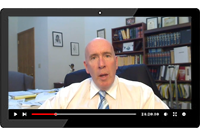There are definite do’s and don’t’s when you find inaccurate information on your
credit report. Here are a few of the most important ones for your use.
- Collector.
Phone calls literally do not count. Many banks and debt collectors erase recordings of calls after 90 days, so the evidence is completely lost. Remember—it would be great if your credit gets cleaned up without hiring an attorney, but it may happen that you need to hire one, and if you do, that attorney (me) will need evidence to pursue your claim. Certified letters are best. Always keep a copy.
Do not use the online dispute function with the credit bureaus! The online dispute function may look convenient but you are likely unaware that you are waiving your right to file a lawsuit and have a jury if you use the online dispute function. Hidden in the small print are waivers of jury trial rights and the right to bring your case in court. Instead you will be stuck in arbitration, with limited available damages, and your outcome will likely not be anywhere near as good as you could have obtained if you’d filed a lawsuit.
Also, be forewarned: at least one major bureau (Equifax) has automated its online disputes. In other words, no human being at Equifax will ever see or evaluate your online dispute. Your dispute will automatically be forwarded to the data furnisher for reinvestigation, but there are definitely times when you want a human being to look at your dispute. Otherwise, it could be misclassified and this could prevent any credit correction.
- Disputing in Writing With the Credit Bureaus Is A Legal Requirement for Suing the Credit Bureaus.
Under the Federal Fair Credit Reporting Act, you must dispute with the credit bureaus (Equifax, Experian and TransUnion) before you can pursue your claim under the Fair Credit Reporting Act. For the vast majority of cases, you cannot sue the credit bureaus unless you first dispute with them. There are a few exceptions to this but in general we advise all of our clients to start out with a certified letter to the bureaus, cc to the creditor/debt collector, as it definitely looks good to try to straighten the problem out yourself before you hire a lawyer.
- In California, You Can Sue a Creditor/Debt Collector (a “furnisher” of credit information) Without First Disputing With the Credit Bureaus, But It Still is Good Form to Give the Creditor/Debt Collector a Chance to Fix The Problem Before You Sue.
California law permits a consumer to sue a creditor/bank/debt collector for inaccurate or incomplete credit information without first disputing with the credit bureaus. (Federal law requires that you dispute with the credit bureaus before you are allowed to bring a lawsuit against a data furnisher.) When many consumers find false information on their credit reports, they want to sue the creditor/bank/debt collector (the “data furnisher”) right away. This is generally not a good idea. It is always good form to give the creditor/bank/debt collector a written notice to clean up the false information before you bring a lawsuit. If the case does go into litigation, you will look a lot more fair and reasonable.
- Provide the Credit Bureau and the Data Furnisher with Any Documents or Information To Help Them Make the Right Decision.
If you want your credit cleaned up, give the credit bureau and the data furnisher copies of the documents showing that the credit information is false or inaccurate. Not only will this increase the likelihood that you will get your credit report corrected without having to file a lawsuit, but if you do have to file a lawsuit, you can say with conviction that you provided the bureaus and the data furnishers with the information they needed to make the right call.
- To Make Their Task Easy, Copy the Page of your Credit Report With the Inaccurate Information and Circle it For the Credit Bureau and for the Furnisher.
It helps the reinvestigation if you copy the page (or pages) of your credit report and circle or highlight the inaccurate information, and then send these pages along with your dispute letters. This will make it easier for the credit bureaus and for the data furnishers to see exactly what you are disputing.
- Be Very, Very Careful of Using Credit Repair Organizations.
There are a handful of good credit repair organizations out there, but most are plain awful and will do more damage than good to your credit standing. Credit repair organizations are usually not run by anyone with any real knowledge of the credit industry; a lot of these people had completely disrelated jobs when the economic downturn occurred, and jumped into the credit repair business. Most credit repair organizations are high-volumn, low-quality operations that really do not help you at all. I have seen many, many consumers who have had their credit situations worsened significantly because they hired a credit repair organization.
If you follow the steps in this short article, you can do it yourself and you’ll do a much better job of it.
Copyright © 2015, 2021 by Robert F. Brennan . All rights reserved.

